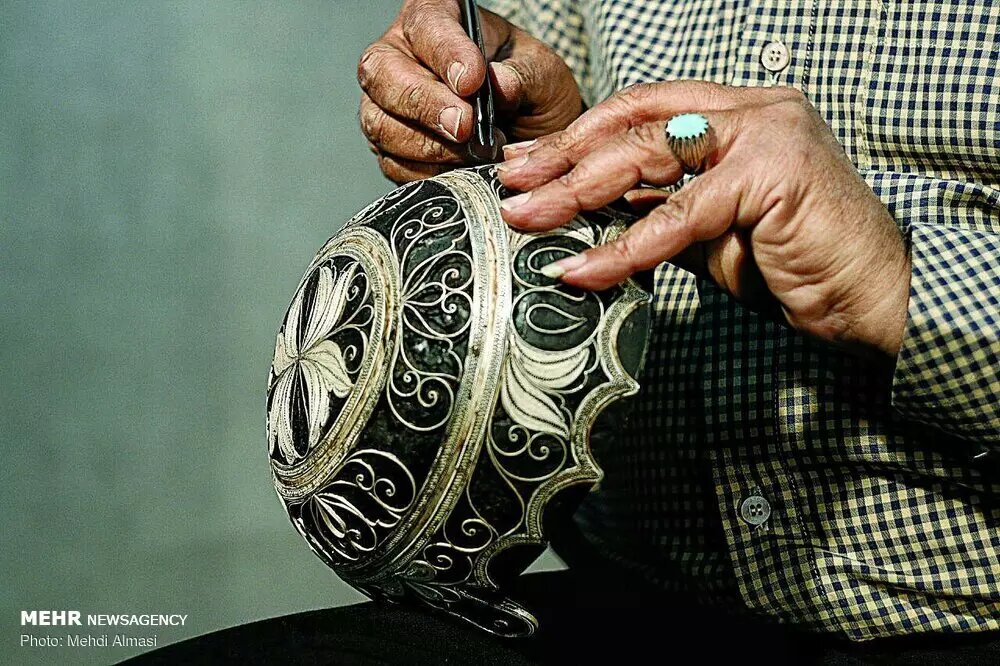Hundreds of job opportunities offered to Zanjan crafters

TEHRAN – The handicraft sector has provided hundreds of job opportunities across Zanjan province during the first nine months of the current Iranian calendar year (March 21-December 21).
“A total of 1110 job opportunities have been created for the artisans and crafters across the northwestern province during the first nine months of the year,” provincial tourism chief Amir Arjmand said on Tuesday.
The creation of handicraft jobs could help reverse the rural-to-urban migration trend, and improve the livelihoods of the rural inhabitants, he noted.
Zanjan is considered to be one of the most important provinces in the field of handicrafts and the region’s crafters have created valuable works in the fields of knifemaking, filigree, kilim weaving, and charuq (a local style of women’s handmade shoes) from the distant past, the official added.
Zanjan is known for exquisite handmade products including knives, copper dishes, and filigree. In January 2020, Zanjan was designated as a “world city of filigree” by the World Crafts Council after the WCC assessors visited various craft workshops, stores, exhibits, and bazaars of the city in a two-day itinerary in December 2019.
With 14 entries, Iran ranks first globally for the number of cities and villages registered by the World Crafts Council, as China with seven entries, Chile with four, and India with three ones come next.
The value of Iran’s handicrafts exports stood at $120 million during the first eleven months of the past Iranian calendar year 1399 (March 20, 2020 – February 18, 2021), Mehr reported. The country’s handicrafts exports slumped during the mentioned months in comparison to the same period last a year earlier due to the damage the coronavirus pandemic has inflicted on global trade.
The Islamic Republic exported $427 million worth of handicrafts during the first eleven months of the calendar year 1398. Of the figure, some $190 million was earned via suitcase trade (allowed for customs-free and tax-free transfer) through 20 provinces, according to data compiled by the Ministry of Cultural Heritage, Tourism and Handicrafts.
Ceramics, pottery vessels, handwoven cloths as well as personal ornamentations with precious and semi-precious gemstones are traditionally exported to Iraq, Afghanistan, Germany, the U.S., the UK, and other countries.
ABU/AFM

Leave a Comment